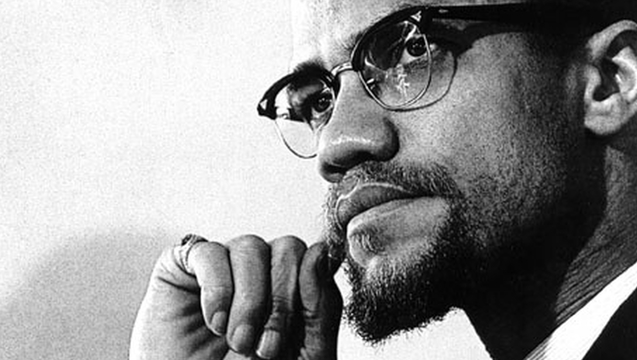Malcolm X
In honor of Black History Month, every school day The Cardinal will feature a prominent and historical Black American, living or dead, who has worked toward change, advancement, and/or world peace. Some of them are heroes, and some are unsung heroes, who deserve recognition, and have made a contribution to society.
February 21, 2023
Malcom X was born on May 19,1925 in Omaha, Nebraska. He was the fourth child out of seven children.
Malcolm was an American Muslim Minister and Human Rights activist. He was a prominent figure during the Civil Rights Movement. His father, Earl Little, was the local leader of the Universal Negro Improvement Assosiation (UNIA), which caused Little to receive a lot of threats causing the family to move around many times. Malcolm was also a vocal advocate for Black empowerment and the promotion of Islam within the Black community.
In 1946, Malcolm was arrested while picking up a stolen watch he had left at a shop for repairs. While in prison his siblings wrote to him about the Nation of Islam and that’s where he began to follow the way of the Islamic life. While the civil rights movement fought against racial segregation, Malcolm X advocated the complete separation of African Americans from Whites. He proposed that African Americans should return to Africa and that, in the interim, a separate country for Black people in America should be created. His speeches had a powerful effect on his audiences, who were generally African Americans in northern and western cities. Many of them, tired of being told to wait for freedom, justice, equality and respect.
Malcolm X is widely regarded as the second most influential leader of the Nation of Islam. On March 8, 1964, Malcolm X publicly announced his break from the Nation of Islam. Though still a Muslim, he felt that the Nation had “gone as far as it can” because of its rigid teachings. He said he was planning to organize a Black nationalist organization to “heighten the political consciousness” of African Americans. He also expressed a desire to work with other civil rights leaders.
On February 21, 1965, he was preparing to address the Organization of Afro-American Unity in Manhattan’s Audubon Ballroom, when someone charged the stage and shot Malcolm, followed by two others with automatic handguns. He was pronounced dead at 3:30 pm.
Malcolm X was admired by many. Except for his autobiography, Malcolm X left no published writings. His philosophy is known almost entirely from the many speeches and interviews he gave from 1952 until his death.


